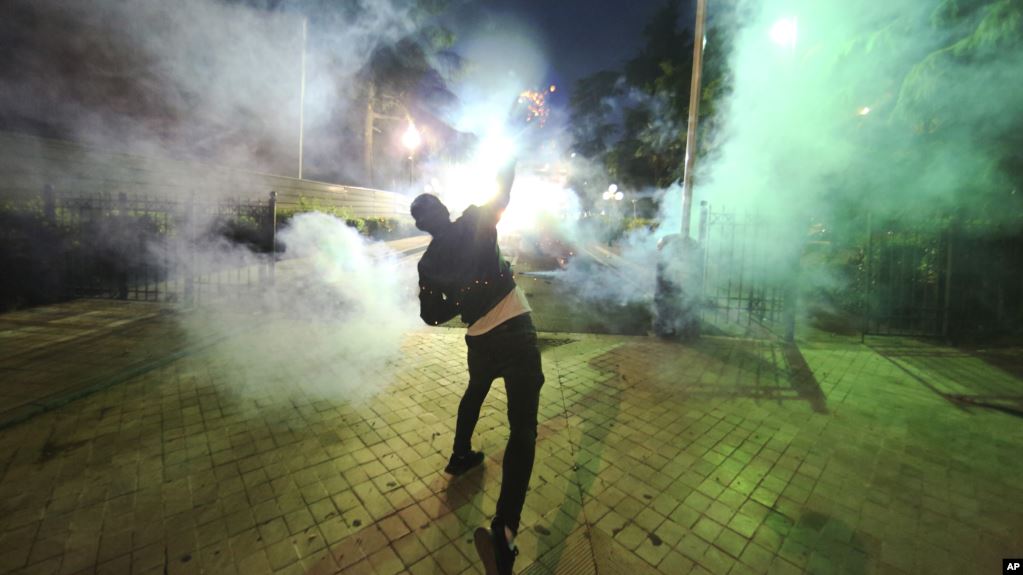Download PDF :


Balkan Insight (7 June 2019)
Tensions between the government of Montenegro and the Serbian Orthodox Church, SPC, have risen after the one of its senior bishops said priests were ready to defend Church property with their lives if the government attempted to seize it.
Bishop Joanikije of Budimlja-Niksic said the Montenegrin authorities were worse towards the Church than the old communist regime in Yugoslavia, accusing the government of planning to legalize what he called the abduction of Church property – and vowing to resist.
“Do not expect us to go peacefully. We will not arm ourselves but we will defend our property with our very lives. When it comes to that, there are no rules. I’m not scaring anyone, that’s just so,” the bishop told a local television station.
The fighting talks comes after the government in Podgorica approved a draft law on the freedom of religion or belief and on the legal status of religious communities on May 16.The draft law has drawn sharp criticism from the country’s largest faith community, the Serbian Orthodox Church.
Fresh disagreements with the Church erupted after the state revealed a register all religious objects and sites that were formerly the property of the kingdom of Montenegro before it lost its independence and was merged into the new Serb-dominated Kingdom of Serbs, Croats and Slovenes, later renamed Yugoslavia, in 1918.
The new law says religious communities can only retain ownership of their property if they have evidence of ownership.“If there is no such evidence, it is a matter of property created and acquired by the state of Montenegro and represents the cultural heritage of all its citizens. Such property will be enlisted as cultural treasure, that is, as state property of Montenegro,” the draft law reads.
The Serbian Church claims it was not consulted in the drafting of the law and accuses the government of trying to place the Church under its control. As Montenegro currently has no law on religious communities, it leaves room for different interpretations between the government and the Serbian Church when it comes to property rights.
The last such law was adopted in 1977, according to the governemnt, but some experts and scholars claim it was abolished in 1979.
In the absence of a clear legal framework defining ecclesiastical property, the governemnt has lent support to arguments that churches and religious buildings do not belong automatically to the Serbian Orthodox Church but to the people of Montenegro.In protest against the government’s latest plans, Metropolitan Amfilohije Radovic, the leading Serbian bishop in Montenegro, has summoned a Church council on June 15 in Podgorica, which will send a message to the “government and the international community”.
It meanwhile urged believers to undertake a three-day fast ahead of the assembly “for the healing of hatred between brothers”. The Ministry of Human and Minority Rights has assured denominations in the country that the state does not intend to seize their property.
“If a religious community has evidence that it has become the owner of some property on the basis of valid regulations, the state will admit it and respect it,” Zana Filipovic, from the ministry, told the media.
The government proposed a similar law in 2015, but it was withdrawn after protests from the Serbian Orthodox Church and the matter was postponed for the next four years. Montenegrin deputies are expected to vote on the bill at a session of parliament in July.
Before the debate in parliament, the Venice Commission, the top legal advisory body of the Council of Europe, is expected to give its opinion.
Relations between the government and the Serbian Church have historically been fractious, mainly because the government sees the Church as the long arm of Serbia, and as hostile to the country’s independence, which was re-established after a referendum in 2006. For its part, the Church sees the pro-Western government as hostile to what it views as Montenegro’s Serbian heritage.
https://balkaninsight.com/2019/06/07/serbian-bishop-accuses-montenegro-of-eying-churchs-property/
 ALBANIA'S PRESIDENT CANCELS ELECTIONS, CITING TENSE CLIMATE
The Balkans
10.06.2019
ALBANIA'S PRESIDENT CANCELS ELECTIONS, CITING TENSE CLIMATE
The Balkans
10.06.2019




























